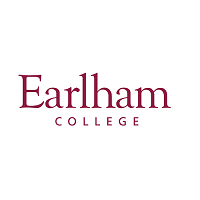Talk of the Transition Town
By Mary Fife
When I first heard about the concept of a transition town, I pictured hippies with long, un-kept hair dancing barefoot around a fire, rejecting all forms of modern technology and anything synthetic or non-organic. Tie-dye, uncalled-for rebellion and just plain weird were the words that came to mind. I wasn’t ready to share ideologies with these imaginary beings I’d dreamed up. I quite enjoyed the fact that my car, sunglasses and iPod all come from different corners of the globe – It somehow made me feel more sophisticated as a person! Then my better nature took over and forced me to think about the environmental impact of my consumption habits with all the travelling that my sunnies would have had to do to have found themselves on display in the store from which I purchased them. Can our planet really sustain this level of globalization?
The transition town movement is a way of living that addresses this question and answers with a resounding “NO!” It is a relatively new concept and started to surface in 2005 in response to the global need for a more sustainable way of living. A transition town (which could also be a village, suburb or island) aims to be as self-reliant as possible; this is believed to be a necessity in the face of climate change and peak oil – the point at which the maximum extraction rate of crude oil is reached, given the depleting quantity and deteriorating quality of the reserves.
Think about what that means for a second. If the supply of crude oil cannot meet demand, the price escalates until eventually, itjust becomes wildly expensive. This not only means that we’d need to trade in our petrol cars for hybrid models, it also means that international trade will become a lot more costly and this is likely to drastically affect the way we live. Suddenly the transition town model doesn’t sound that crazy.
The aim of a transition town is to first and foremost build awareness around the need for a more sustainable way of living. The focus is on becoming less reliant on external resources – and therefore oil. As a community, they actively engage one another to reduce energy and water consumption; produce zero waste by adopting the “one man’s trash is another man’s treasure” principle, encouraging community gardens to improve food security, supporting local business and in some cases, even adopting a local currency.
This may seem a little extreme but we only need to look as far afield as our Cape Town host organizations to see some of the principles being adopted locally. Abalimi Bezekhaya is one such organization that uses the principle of urban food gardens and community gardens to generate income and improve food security and self-sufficiency in local communities. Another host organization that has more wholly adopted the principle of transition culture is the Green Living Center in Hout Bay which aims to ensure that the suburb becomes more self-sustaining. They reject the idea that peak oil and climate change should be the motivating forces behind the movement and believe that there are many more reasons – specific to our local context – to adopt this way of living. According to the Green Living Center, a community that aims to become more self-sufficient is less vulnerable to the threats of economic instability and food insecurity. Being more self-sufficient also allows communities to take ownership of creating jobs to combat unemployment and poverty.
The problem with the peak oil issue is that it is believed that we’ll only really know when we’ve reached this point after a few years of hindsight. We don’t know when peak oil will be. Others are saying that it’s a myth / conspiracy theory. Whether you buy into it or not, start your own vegetable garden in your back yard, buy a box of Abalimi’s veggies, or decide to do absolutely nothing at all, what’s important is a growing awareness of a need to become more considerate of our environment and natural resources. The earth can no longer sustain our current way of living. Peak oil or not, something needs to change.
Mary Fife previously facilitated environment-related internship and volunteer opportunities for Connect-123 Cape Town program participants. In 2011 she left Connect-123 to join the Green Building Council, a non profit organization focused on promoting sustainable building practices and designs within the South African property industry.












